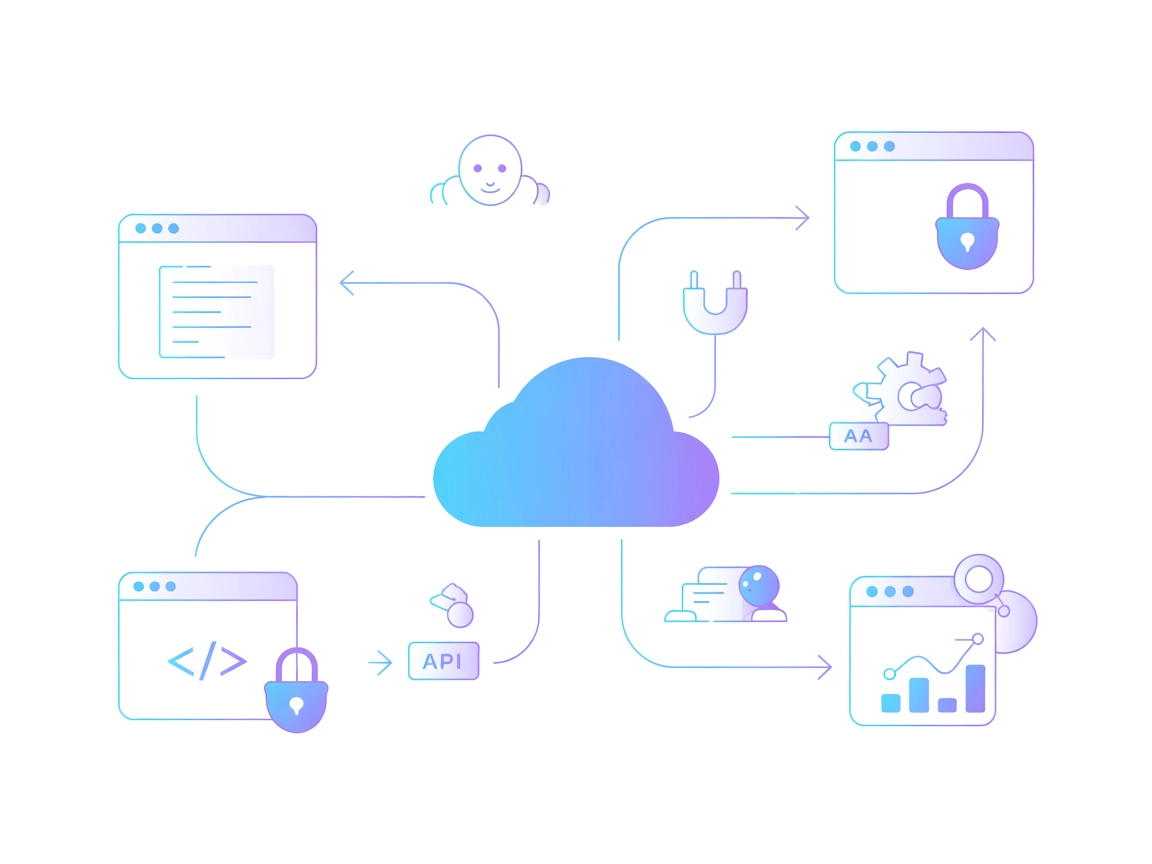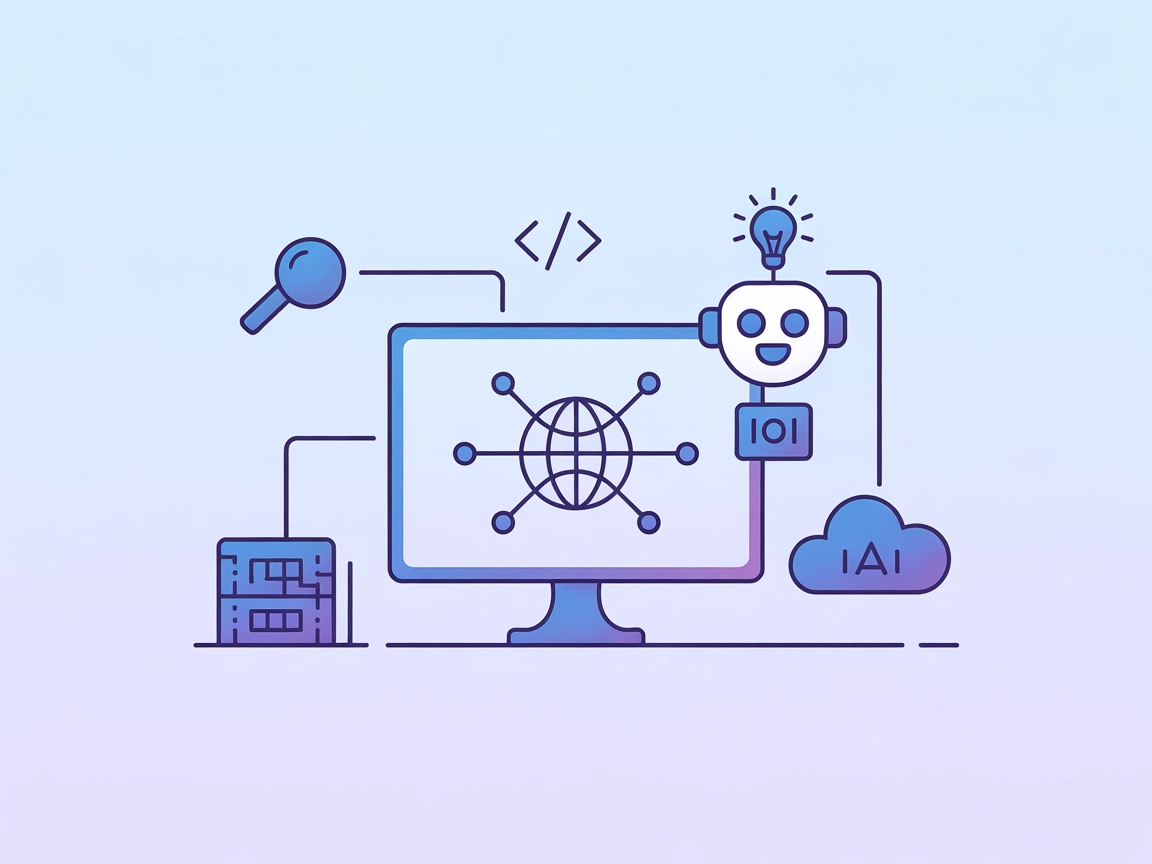
Fetch MCP Server
The Fetch MCP Server for FlowHunt enables AI agents to retrieve and transform live web content in multiple formats, including HTML, JSON, plain text, and Markdo...

Scrapling Fetch MCP Server lets your AI agents fetch and extract protected web content, enabling context-rich assistance and automated documentation workflows even on bot-protected sites.
FlowHunt provides an additional security layer between your internal systems and AI tools, giving you granular control over which tools are accessible from your MCP servers. MCP servers hosted in our infrastructure can be seamlessly integrated with FlowHunt's chatbot as well as popular AI platforms like ChatGPT, Claude, and various AI editors.
The Scrapling Fetch MCP Server is a specialized Model Context Protocol (MCP) server designed to help AI assistants access text content from websites that implement bot protection and anti-automation measures. By leveraging the underlying Scrapling tool, it bridges the gap between what users can see in their browsers and what AI agents can retrieve, making it possible to fetch HTML or markdown from sites that would otherwise block automated scrapers. Scrapling Fetch MCP is optimized for low-volume retrieval of documentation and reference materials, specifically focusing on text and HTML rather than general-purpose site scraping. This makes it a valuable asset for development workflows that require access to protected online documentation or context enrichment, while respecting site boundaries and intended use.
No explicit prompt templates are documented in the repository.
No explicit MCP resources are documented in the repository.
No specific instructions for Windsurf are documented in the repository.
uv tool install scrapling
scrapling install
uv tool install scrapling-fetch-mcp
{
"mcpServers": {
"Cyber-Chitta": {
"command": "uvx",
"args": ["scrapling-fetch-mcp"]
}
}
}
No explicit documentation on API key usage or environment variable configuration is provided.
No specific instructions for Cursor are documented in the repository.
No specific instructions for Cline are documented in the repository.
Using MCP in FlowHunt
To integrate MCP servers into your FlowHunt workflow, start by adding the MCP component to your flow and connecting it to your AI agent:

Click on the MCP component to open the configuration panel. In the system MCP configuration section, insert your MCP server details using this JSON format:
{
"scrapling-fetch": {
"transport": "streamable_http",
"url": "https://yourmcpserver.example/pathtothemcp/url"
}
}
Once configured, the AI agent is now able to use this MCP as a tool with access to all its functions and capabilities. Remember to change “scrapling-fetch” to whatever the actual name of your MCP server is and replace the URL with your own MCP server URL.
| Section | Availability | Details/Notes |
|---|---|---|
| Overview | ✅ | Clear overview in README |
| List of Prompts | ⛔ | No prompt templates documented |
| List of Resources | ⛔ | No MCP resource definitions documented |
| List of Tools | ✅ | s-fetch-page, s-fetch-pattern |
| Securing API Keys | ⛔ | No details on API key or env var setup |
| Sampling Support (less important in evaluation) | ⛔ | Not mentioned |
| Roots Support | ⛔ | Not mentioned |
Between the two tables, the Scrapling Fetch MCP Server stands out by providing clear and useful tooling for protected web retrieval, but lacks standardized prompts, resource declaration, and advanced security/environment variable documentation. Based on its features and documentation, we would rate this MCP a 6/10 for overall completeness and utility.
| Has a LICENSE | ✅ (Apache-2.0) |
|---|---|
| Has at least one tool | ✅ |
| Number of Forks | 5 |
| Number of Stars | 31 |
It enables AI agents and chatbots to access and extract text or HTML content from websites with bot protection, making it possible to fetch documentation or reference material that would otherwise be inaccessible to automated tools.
Two main tools: s-fetch-page (fetches complete web pages, supporting pagination for large documents) and s-fetch-pattern (extracts content matching user-supplied regex patterns, with configurable context).
Use cases include accessing bot-protected documentation, extracting specific information via regex, summarizing web content, contextual IDE assistance, and incremental retrieval of large documents.
Add the MCP component to your flow, open its configuration panel, and insert your server details in JSON format under system MCP configuration. Ensure you use the correct server name and URL for your deployment.
The current documentation does not specify the need for API keys or environment variable configuration for Scrapling Fetch MCP.
It is released under the Apache-2.0 license, making it open source and suitable for integration in both personal and commercial projects.
Integrate Scrapling Fetch MCP Server to empower your AI workflows with access to protected website content and enhanced web automation capabilities.

The Fetch MCP Server for FlowHunt enables AI agents to retrieve and transform live web content in multiple formats, including HTML, JSON, plain text, and Markdo...

The ScrAPI MCP Server empowers AI assistants to extract live web content—even from sites protected by captchas, bot detection, or geofencing. By acting as a bri...

The Firecrawl MCP Server supercharges FlowHunt and AI assistants with advanced web scraping, deep research, and content discovery capabilities. Seamless integra...
Cookie Consent
We use cookies to enhance your browsing experience and analyze our traffic. See our privacy policy.